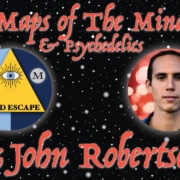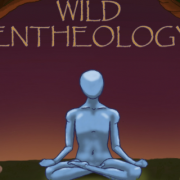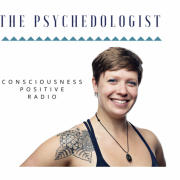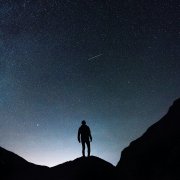On November 1st, in just over three weeks, I will open the course portal for R/EVOLUTION.
R/EVOLUTION is a deep dive course for psychedelic explorers. If you’d like to find out more about the core information or sign up, visit the course page. Here I will share more of a behind the scenes blog post.
The Openings of R/EVOLUTION
I am excited to say that after having done a soft launch, we already have the first members of our first cohort signed up and on board. I have ‘soft launched’ over the last week by emailing an early version of the course page to previous clients, those who filled out the feedback form, and my mailing list, and adjusting and editing the course page based on their feedback. I am really excited to see the first group for this course beginning to come together. This cohort will be a key part of what I see as a co-creative group experience.
Group Experience
One aspect that I want to bring to R/EVOLUTION is the group experience aspect. Connecting with others is something that many people on the psychedelic path have difficulty with, for obvious legality and stigma reasons, and a few people who were generous enough to give early input mentioned that this aspect of the course would be very appealing and go some way to making the course a meaningful experience.
One of these early contributors even mentioned that they feel like integration is like a solo sport, and this is something that resonated with me. I remember often feeling like a total outsider after my first psychedelic experiences ten years ago. I was fortunate enough to have one friend who also had his worldview thoroughly shaken to talk with, though at the time, I had never heard of the term ‘psychedelic integration’, let alone had a framework or guide. I fumbled through and found my way, leaning heavily on meditation as a support and finding some semblance of community support in meditation groups or gatherings in the places I was living. Though I have found my way, I can see how beneficial it would have been to have had a dedicated group or community that I could share my experiences with and learn from through those years. I think it would have supported my growth massively.
Community
The theme of community comes up again and again in psychedelic integration because support is so crucial on a path of growth. Also as humans we are social animals and have a desire to connect with others.
Even in Buddhist tradition, which is often seen as having a very solitary practice, community, or Sangha, is one of the three key supports, or ‘refuges’ – the other two being the Buddha and Dharma.
In R/EVOLUTION, we will have a series of live zoom calls to give participants a chance to connect with other members of the group. Each call will have a section for small group sharing and connection exercises. Depending on the number of people who attend each call, we may split into smaller and go into breakout rooms for exercises. I tried to fix the dates based on availability of the first signups, but alas it is very difficult to coordinate across different peoples schedules, so I’ve just done my best and tried to include a mix of days so most people can at least attend one. The calls will be recorded and available to people who can’t make them live, and there will be another opportunity to connect through a private Signal group.
The Signal group will offer a place for members to ask questions and share difficulties and learnings as they go through the course. It will also be a space to allow any members to set up peer led calls in addition to the calls I will be hosting as part of the course itself.
Personalising a Psychedelic Approach
Although I hope the group and social aspect will be a big aspect of the course, another key aspect will be that of the individual. The core content of the course will be delivered in audio lessons and associated homework exercises, and I am designing the course in a way that facilitates a personal experience for each participant.
No individual is the same, and I’ve found that developing a personalised approach is the best way to work with psychedelics. Whilst frameworks and structures can be extremely helpful, I believe they are best used as a basis or starting point for exploration, experimentation and customisation.
Throughout the lockdowns of the last year and a half, I’ve spent a lot of time developing and refining my own protocols by way of practice and feedback. The middle section of the course will guide people through the process of doing this themselves, and I will be offering my own protocols and rituals as models and templates to give people ideas.
The templates will be bases or starting points for people to work from and develop their own customised approach. The level that people deviate from the suggestions given is entirely up to them.
I hope that course participants will share their own ideas and customisations with each other too, building something of a repository of knowledge, and together making a contribution to the field of psychedelic exploration.
The Atmosphere of the Space
I hope to create a space of learning, with an atmosphere of genuine warmth and comradeship. It’s also vital to me that community members are respectful of each other, as this is important with the type of openings that psychedelics can bring about and that I hope to facilitate.
I love the feeling of being in a group which has a special bond and I hope we are able to create that by bringing together people who have a shared love of psychedelics, and offering opportunities for connection and bonding. I have found that psychedelic work is especially conducive to forming special bonds and I hope that will be true here too.
I also want members to feel supported and heard, to have a space to share both their learnings and their struggles too. Walking the psychedelic path is no easy feat. For that reason, resources, support systems and finding the others will also feature in the core material too.
My Approach to Creating the Course
Though I have many lesson outlines and a couple folders of material and ideas, I have not yet finalised any lessons. It makes the most sense to tailor the information to those who will actually be using it, so I will be refining the course content based on the input of those who will be taking part.
As such I will be creating a lot of the course content throughout the month of November. When the portal opens on the 1st November, I will have the first few lessons uploaded, so that people can begin, and I will then be creating the rest of the course and finalising lesson plans and recording the audios and uploading them to the course portal as we move through the month. By the 30th, all 30 lessons will be uploaded. This will allow the fastest people to work through the material at one lesson a day, and the rest to go at their own pace. On a personal level, not having everything done beforehand is about leaning into trust, creating something unique and inspired, and developing my creative flow.
I am quite excited about the 29th lesson, which will be decided on by the group. I will be accepting ideas and listening to feedback for the weeks before then, and as we approach that day I will put it out there to the group to decide. I will then do my best in creating a lesson on the specified topic, or perhaps even try to make it something of a group creative collaboration. I will feel into that with the group as it approaches but I’m excited about this as I’m not aware of anything like this already out there.
Creating the Course
Over the last couple weeks my main focus has been building the main infrastructure for the course, such as the course platform, payments system, setting up my home recording studio, and some marketing and outreach. With most of that now taken care of, my focus has begun shifting back to the course content itself.
One of my main challenges right now is that I have too much that I want to pack in and I’m already feeling like the 30 lessons isn’t enough. That is a nice problem to have, and I will see this as an exercise in condensing information as succinctly as I can to the most fundamental principles. I believe that this will lead to each lesson being relistenable and I am aiming to create a course that people can repeat and still make big gains.
Each audio lesson will end with an exercise. These will be a mix of journaling, guided meditation, and awareness or out-in-the-world practice exercises. Currently my thinking is that for some of the lessons, I will offer two or more exercises and people can choose which one they want to do. This fits in nicely with the personalised approach theme that will run through the course and explorers will be able to re-run the course and do any alternate exercises in the future. For those that aren’t sure which one to do, or if nothing in particular calls, I will offer a suggestion as a default first option.
Where I’m at
I am beginning to brew with anticipation and excitement for this experience. As I was setting up my microphone in my home work space yesterday, I reflected on the fact that creating this course will require me to draw upon the vast majority of my professional experience from the last decade of my life. Having studied broadcasting, I worked in media, spent years in education as an English teacher, and then transitioned to workshops and facilitation work in psychedelics.
It really feels like this is how I can best offer my unique gifts to the world at this moment in time. With most of the administrative and organisational work to be taken care of by the end of the week, I am especially excited to shift my energy to the content and finalising and recording a few of the first lessons.
If this course interests you, I invite you to take a look at the R/EVOLUTION page, and if it is calling you, join us!
As I write this, there are still some early bird tickets left 😉






